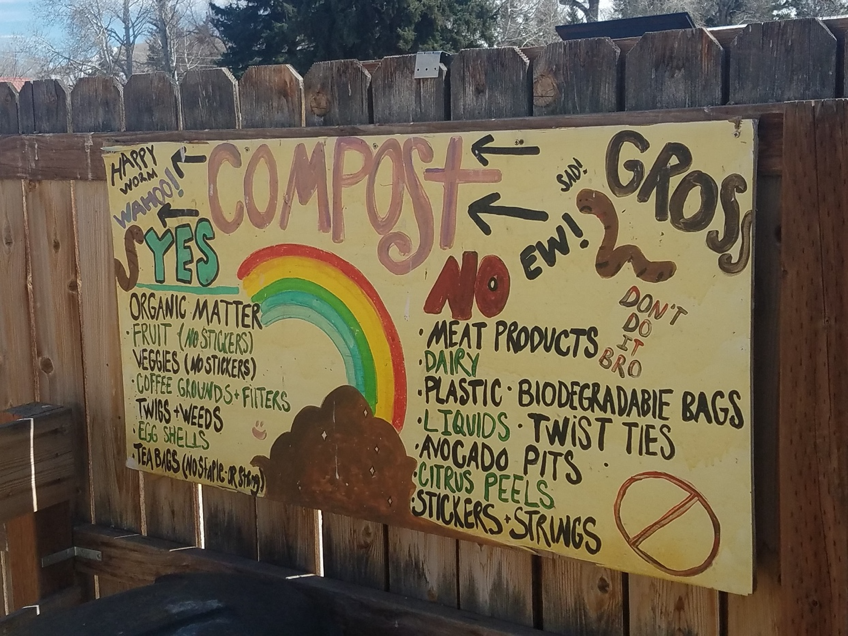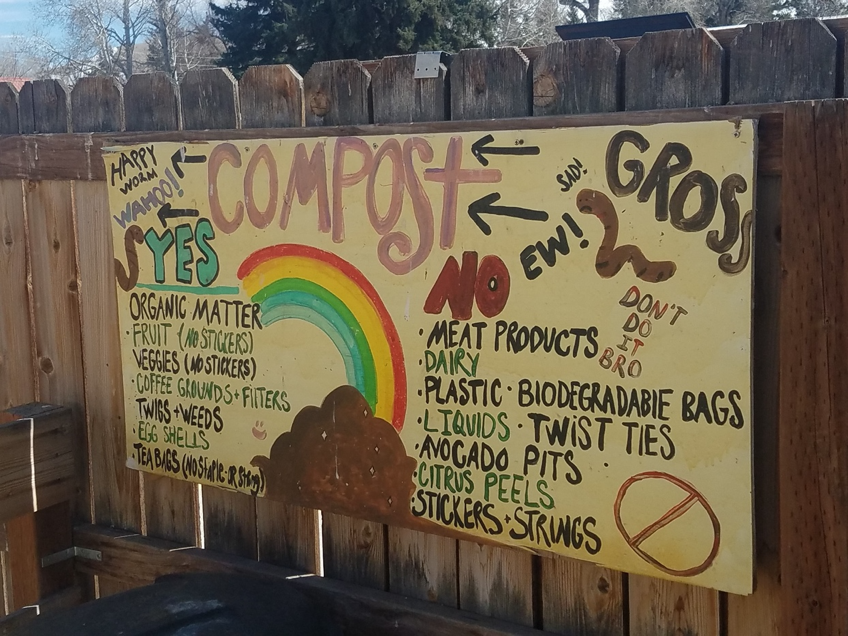
When life gives you food waste, make rich organic matter. That’s the goal of several student-led composting initiatives at Western.
The largest monument to food sustainability is the Rocket Composter, a 13-foot-long stainless-steel tub perched on a platform at the University Center. The Rocket processes organic waste generated by the Rare Air Cafe, which is pulped and loaded into the Rocket with a mix of wood chips, requiring just 14 days to emerge as compost.
Aerobic microorganisms break down the food scraps at a temperature of around 190 degrees, turning the slew of organic matter into nutrient-rich compost. This process is a prime example of a “closed-loop system”, where resources remain useful after their initial usage.
Contrast this with a “linear” system, where food waste is trucked to a landfill and emits methane, a powerful greenhouse gas, during its anaerobic breakdown.
Spearheaded by LEAD Sustainability students, the Rocket composter and associated infrastructure cost $184,527 and were installed back in 2019.
Composting at high altitudes and in cold climates can be tricky, notes Demitra Biddle, a LEAD Sustainability Mentor and 3+2 Environment and Sustainability and Master’s in Environmental Management (MEM) student, and the eyes of the compost community are on Gunnison, the highest altitude community to install a Rocket system thus far.
Operating the Rocket is a delicate process that involves daily check-ins in the winter to avoid freezing. With the aid of a temperature tracking app and a team of dedicated LEAD students, the Rocket continued to produce compost throughout the 2020-21 winter.
To improve Western’s on-campus composting efforts, LEAD Sustainability students wrote a successful follow-up grant to the Sustainability Fund, paid for by undergrad fees, to construct a compost curing station, a large protective storage shed for campus compost.
“Composting is so important because it addresses so many sustainability points: GHG (greenhouse gas) reduction, carbon sequestration, soil health, water, food, and even human health”, notes Dannah Leeman, a second-year MEM student, and former LEAD Mentor.
In the past, forays into residential composting have been hampered by contamination. Education is critical to successful implementation, notes Tess Peterson, an ENVS student and Rocket team member with LEAD, and many students are not aware of the composting process, how easy it is to compost, and its ensuing benefits.
Max Sawyer, an MEM student and OG Graduate Mentor, believes that if students were to taste the food provided by OG’s growing spaces and understand its connection to campus compost, they would be more likely to compost.

